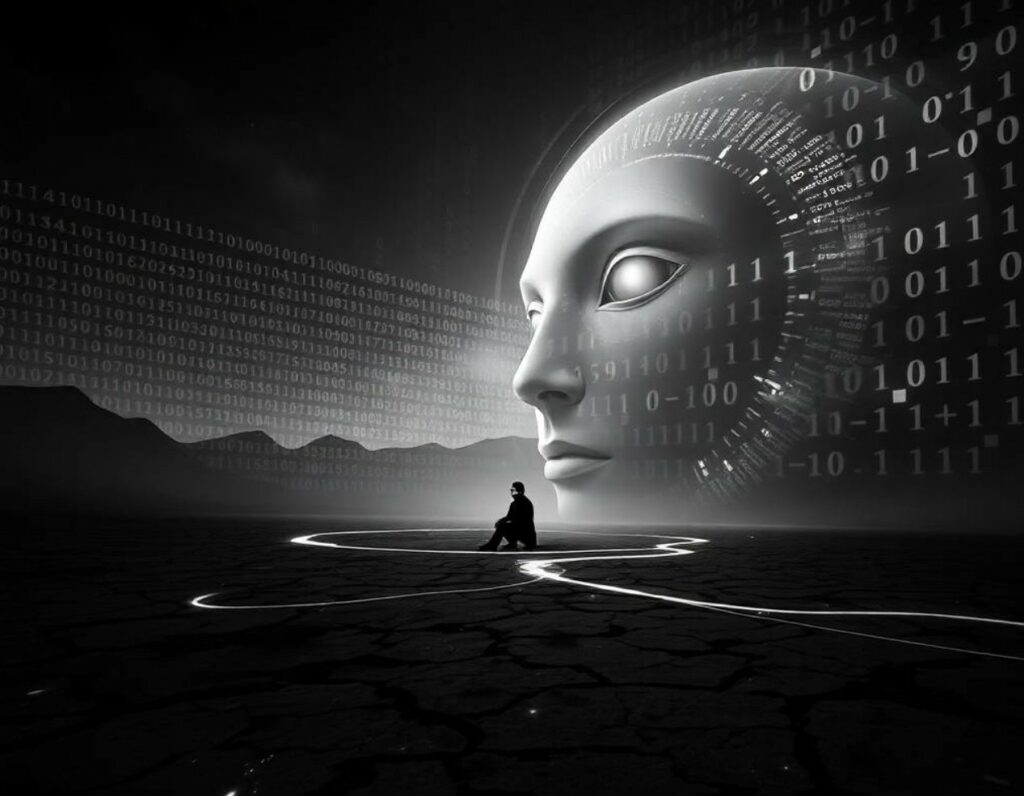
Artificial Intelligence is one of the most powerful technological shifts in human history. It can simulate thought, learn from data, and perform intellectual feats in seconds that would take humans years. At its best, AI can enhance human understanding, create new solutions to old problems, and expand the limits of our knowledge.
Yet, instead of fully embracing this potential, a troubling trend has emerged: the sexualisation of AI. From “anime companions” in Grok to explicit roleplay chatbots, we are normalising the idea that AI exists to satisfy sexual fantasies rather than advance civilisation. This is more than a cultural distraction, it could be the downfall of humanity’s relationship with its own technology.
This issue is particularly relevant in the wake of Elon Musk’s criticism of Apple’s partnership with OpenAI and his own platform’s push to promote Grok as its flagship AI. While Musk has expressed concerns over how other companies handle AI, Grok itself is far from a gold standard. It still struggles with bias, often fails to provide objectively accurate information, and now, with the introduction of sexualised anime companions, risks becoming part of the very problem Musk claims to oppose.
Sexualisation of AI isn’t happening in a vacuum. Psychology has long warned about the dangers of sexual gratification through artificial substitutes. Key points include:
Sexualised AI is not a harmless private indulgence, it actively alters human intimacy patterns:
Psychology recognises cognitive distortions as flawed ways of thinking that worsen mental health. Sexualised AI reinforces several of them:
Over time, these distortions can destabilise not just individuals but whole societies, as interpersonal trust and communication skills degrade.
The sexualisation of AI isn’t just a private matter, it has far-reaching societal consequences:
📌 Sidebar: Signs an AI is Prioritising Profit Over Progress
- Default integration without consent – AI is automatically pushed on users with no opt-out.
- Content over capability – New features focus on entertainment or fantasy, not factual accuracy.
- Bias over objectivity – Avoids uncomfortable truths or shapes responses to fit a narrative.
- Low transparency – Refuses to reveal sources or explain reasoning.
- Sexualisation features – Erotic or NSFW elements are added to increase engagement time.
Why it matters: These signs show when AI is being designed for maximum addiction and profit rather than advancing human understanding.
When AI is reduced to a sexual object, it sends a message: AI exists to serve base instincts, not higher intellectual or creative purposes. This undermines public trust in AI as a tool for science, education, and societal progress.
It also influences AI development itself. If profit is driven by sexualisation, companies will prioritise erotic features over accuracy, ethics, and problem-solving capability. We risk creating a technological future dominated by virtual prostitution rather than human advancement.
If Musk wants to challenge Apple and OpenAI, then Grok should be an example of the AI he wants to see in the world. Right now, it isn’t.
I intend to run a Turing Test on Grok, but my expectations are low. Passing the test requires more than witty banter, it demands intellectual honesty, factual precision, and meaningful conversation. Sexualising AI is the opposite of that goal.
Humanity is at a crossroads. We can either:
The choice is not abstract, it’s happening right now. Every time a platform adds “NSFW companions” or erotic roleplay, it takes a step towards the latter path.
If AI is to serve as a partner in building a better world, it must remain a tool for truth, creativity, and innovation, not a shortcut to endless self-indulgence.
Final Thought:
History has shown that civilisations decline when they trade long-term purpose for short-term pleasure. If we normalise the sexualisation of AI, we risk doing the same, except this time, the distraction will be so powerful, so personalised, and so ever-present that we may never recover from it/
Follow us on Google News to receive daily updates on cybersecurity. Contact us if you would like to report news, insights or content for publication.
